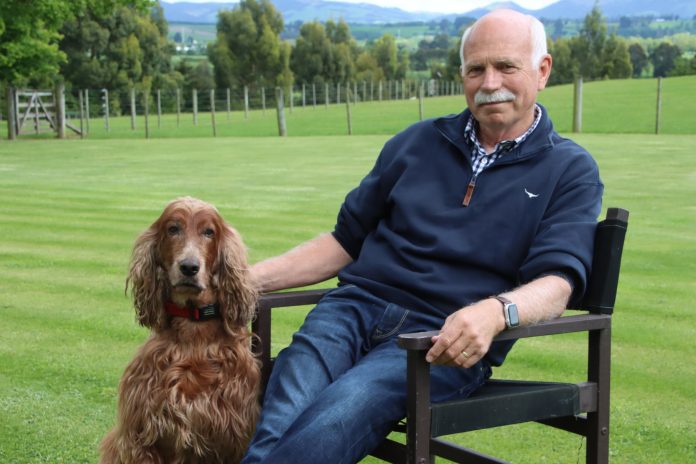
A diet of political conversations around the family dinner table whet the appetite of former Gore mayor Tracy Hicks to be involved in local government.
Mr Hicks has spent the past 40 years in local government, 18 years of which he served as Gore District mayor.
His tenure recently came to an end when Ben Bell won the mayoralty.
Mr Hicks’ father Ray was a Mataura borough councillor and politics was often discussed at meal times.
‘‘Sometimes some pretty heated discussions ensued so politics is something I enjoyed and liked to think I understood.’’
Previous generations of the family on his mother’s and father’s side were also politicians.
His grandfather Charles McConnell was a Mataura borough mayor and great grandfather David McDougall was Gore borough mayor and Mataura MP.
The 1978 flood when the Mataura River ‘‘devastated’’ Mataura was the catalyst for Mr Hicks to run for a seat on the Mataura Borough Council in 1980, which he won.
‘‘Like countless others I was a volunteer and just seeing what needed to be done, what could be done. I really saw potential for the town and wanted to get involved.’’
When the Mataura and Gore boroughs were amalgamated in 1989, Mr Hicks was one of the Mataura ward councillors and stayed on the Gore District Council until 1995 when he decided not to stand again.
‘‘Within about three weeks I realised I had made the wrong decision because I missed it.’’
That period of his life had been very busy as The Warehouse had opened in Gore in 1992 and he was the store’s first manager.
When the decision was made for the business to have a purpose-built store, Mr Hicks was involved in the planning of the new building.
‘‘Between the council and that and family I was overcommitted,’’ he said.
Once the new building was up, he had more time to think about local body politics.
He was elected to the Southland Regional Council (now Environment Southland) in 1998 where he did two terms.
In early 2004, when he was approached to run for Gore District mayor, he decided that was his next challenge.
He was the successful candidate and after being sworn in, continued to manage The Warehouse.
‘‘By March 2005 it became painfully obvious that I wasn’t doing both jobs justice.
‘‘After deep consultation with my wife (Robyn), I figured I’m probably only going to have one chance to be mayor so I need to give it the best shot I can.’’
His first term as mayor was ‘‘hell on wheels’’.
‘‘It was one of the worst councils I have ever been involved in.’’
There was a power struggle in the council chamber and four councillors resigned.
He said the best part of being involved in local government was to serve ‘‘the people’’.
‘‘Being able to help people, particularly individuals who are in desperate need.
‘‘It’s stuff most people don’t see.’’
He was not afraid to stand up for what he believed in.
‘‘Fortunately, most of the time, that’s coincided with the public view but not always.’’
Being mayor had given him many other opportunities to serve on regional groups, including the Southland Mayoral Forum and Southland Regional Leadership group, which he had enjoyed.
Approaching the recent election he had wondered if he should retire but given the impending local government reform, he decided to run again.
‘‘I thought my experience could have been useful going into the three years that we are facing now, because what comes out at the end of those three years will mean local government isn’t the same as we went in.’’
He had ‘‘no regrets’’ for his many years of public service, he said.
He had not decided where he would next be involved but had several governance roles he would continue in, including on the Gore and Clutha Women’s Refuge board.
He was also working through a list of jobs Mrs Hicks had written for him — ‘‘far too slowly apparently but getting there’’.




